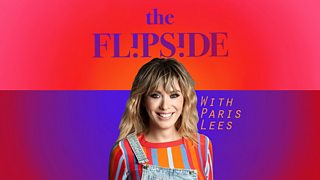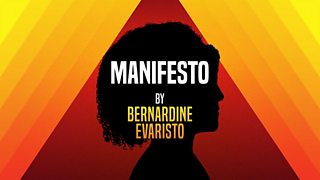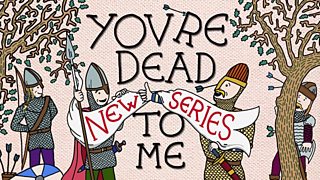Hooking up: A swinger and a celibate share their stories
In each episode of The Flipside, presenter Paris Lees tells two stories from opposite sides of the coin, and uses science to ask questions about elements of the human experience that we sometimes take for granted.
In Hooking Up, Paris explores sex. She asks, what do our intimate relationships with other people tell us about ourselves? A female incel (involuntary celibate) and a woman who’s deep in the swinger lifestyle share their unique experiences.
-
![]()
Listen to: Are we obsessed with sex?
Paris meets a female incel (involuntary celibate) and a woman who鈥檚 deep in the swinger lifestyle.
Sex was something that the cis female had to give the cis male because that was part of her chores
Cate and Darrell met at work. They were friends at first and then they became friends with benefits, before deciding to have a monogamous relationship.
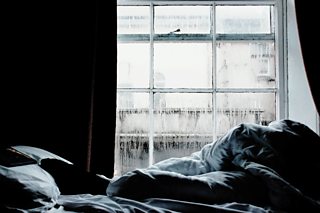
“When I met him, definitely I was dealing with some of my upbringing,” admits Cate, who grew up in Australia, in a family where “sex was something that the cis female had to give the cis male because that was part of her chores.”
“It wasn’t necessarily something that should be pleasurable or should be discussed,” she says. Orgasms with her previous partners were “minimal at best”.
He said to me, ‘I’m really interested in your sexual pleasure… what does that look like for you?’
Then five years into her relationship with Darrell, he asked her what her sexual desires looked like.
“No one had asked me that question before,” admits Cate. So, she googled the top ten sexual fantasies – and threesomes and swinging came high on the list. “And then we just started exploring what that looked like,” she says. “We started watching media that represented these non-monogamous relationships or play styles.” She commented on what turned her on, what interested her and what didn’t. “Our first play session was actually Darrell playing with another lady, and me sitting on the bed with her partner, watching,” she recalls.
“And from there we just started on our journey and here we are, six years later, as a non-monogamous couple.”
We practice ethical non-monogamy
The freer the sex, the more formalised the rules can be. Cate and Darrell don’t have a “no kissing” rule like lots of swingers, but they do have terms that they adhere to.
“Protection is non-negotiable for us, because health matters,” says Cate. “One of our other rules is we practise ethical non-monogamy.” This means they won’t engage with anyone who’s cheating on their partner. “We would like to leave people in a better circumstance and healthier than when we’ve met them,” she says.
I can probably remember the first actually two to three times we stepped into swingers clubs
Entering a swinging event can be daunting, explains Cate. It’s unlikely you’ll be walking up to a building with a pleasant façade and a clear sign. “What it has is a door with a camera and a buzzer built into it… I think that really adds to that element of fear,” she says. You don’t know who is going to answer or what’s happening on the other side of the door. “It was terrifying,” she admits.
Then you walk in, put your bag down and face a room full of strangers, not knowing how to begin. “It takes a lot of courage to put yourself in those positions and even to this day sometimes I walk into a new event and feel like we are out of place, or we don’t really know what to do,” says Cate.
Femcels are different to incels
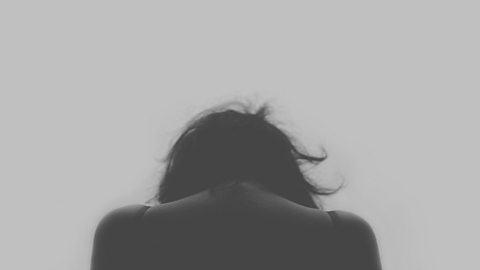
Femcels are different to incels
A femcel explains what being a female celibate means, and how they differ to incels.
You’re able to truly be yourself, unapologetically
Society tells us we need a picket fence, a partner of the opposite sex, two-and-a-half children and a dog – “stepping outside of that into any kind of taboo does occasionally bring an element of shame with it,” admits Cate.
But the swinging lifestyle has also given her so much that is positive, including the realisation and acceptance that she is bisexual.
“For me personally it’s been about exploring my sexuality,” she says. “It has been about feeling like I’m OK to then take this into other areas of my life. And meeting all these great people has boosted my self-confidence, my self-worth.” She says it’s been “lovely” to strip away “those multiple masks that we have to wear going from work to home to friends… It strips all that away and you’re able to truly be yourself, unapologetically.”
Cate found community through like-minded, sexually liberated people. But what if the sexual sub-culture you join is a group of people who aren’t actually having sex?
When you’re told that men will have sex with anything and then they won’t even have sex with you, it feels like the most ultimate failure ever
Giga grew up in the US. “I had a pretty wholesome, very, very sheltered, conservative childhood, so I missed a lot,” she says. When she did start to get out into the world, it wasn’t easy. Giga calls herself unattractive and says she was the ugly friend growing up.
“You start to hear the boys who ask girls out as a mean joke to bond with other guys. You start to hear, ‘Oh, this person is beautiful enough to sit down and eat with, and this is the kind of person that you only have sex with in secret, don’t be seen with that person.’ It was just painful to be awake,” she recalls. She remembers hugging herself at night so it would feel like someone was holding her. “It was extremely lonely.”
So, when she found an online community of others who had had similar sexual experiences, Giga finally felt like she had found some kindred spirits.
Femcels are female celibates
Giga first learned what a femcel was when she went on to Reddit and found a community called Forever Alone Women. “A femcel is a woman who is considered physically unattractive and is often celibate, not by choice,” explains Giga. (Although for some it is by choice.)
However, though the femcel community was started by physically unattractive women (based on conventional standards of beauty), it now encompasses a wide range of women, including minority women who live in all white neighbourhoods or others who are isolated in their communities.
“It’s like a validation,” says Giga. “We see you. We know that your experience is a real, tangible thing… You can come sit with us.”
We do believe in comforting each other, we do believe in community
Incels are men who are involuntarily celibate. They often gather online to talk about their experiences with women and their forums are usually full of misogyny and hate. A number of mass murders have been carried out by men who call themselves incels. Giga insists there are big differences between the two groups.
“Men tend to externalise their rage, and women tend to internalise. We will self-harm in any sort of way possible. We do believe in comforting each other, we do believe in community – even if it’s just like the most depressed girls’ circle. We just feel a little bit better, a little bit cosier with our little bubble.” In contrast, a lot of incels want to change the way of the world, says Giga. “They don’t mind taking rights away from women to do it.”
Giga is often asked why incels and femcels can’t hook up together, but the incels’ rage, hostility and misogyny make them dangerous for women.
A “Stacy” is the “prototypical hot girl”
Giga explains the hierarchy with which women are judged within the incel community.

A “Stacy” is the “prototypical hot girl”: 8 out of 10 and above. “Becky” is the “average girl”, around a 6. There’s even “Stacylite”, someone who’s almost a Stacy but “something’s missing”. Lower down the scale there’s a “normie” or a “low-tier normie”. She’s not a femcel, but she’s not cute, explains Giga. “Then you have the femcels, the 4 out of 10s and below. You’re not pretty, you might be deformed, you might have severe skin conditions.”
It’s not nice to categorise people, but do you know what’s worse? Living in these invisible tiers and acting like there isn’t a social hierarchy
The hierarchy exists, insists Giga.
She explains “Lookism”, and how people whom society deems as unattractive aren’t just rejected sexually, they’re also less likely to receive good customer service, or even get jobs. And then there’s “pretty privilege”. Women who are good looking have a halo effect around them, and have doors opened to them – both literally and figuratively.
I like myself the way I look more now but I still have a lot of hiccups
Giga says she can easily see beauty in others, even those who are not conventionally good looking, but she struggles to see it in herself. “I try not to be hypercritical of myself any more, but I resonate so much with where I came from that I guess I just don’t see myself in that light,” she says. But she’s familiar with her own face now and has learned to be ok with it. “After a while you kind of disassociate with this body that traps you in this awful experience, and you don’t want to be in this experience anymore.”
Giga is now in a long-term relationship, which she describes as “the impossible happening”. She’s in a good space and she’s happy.
“I just wish I could multiply that and share it with all the women I spend time with,” she says.
Listen to The Flipside with Paris Lees now on 麻豆社 Sounds.
-
![]()
Uncanny
The Battersea Poltergeist鈥檚 Danny Robins investigates chilling first-hand stories of paranormal encounters, from ghostly phantoms to sinister folklore and UFOs.
-
![]()
Fortunately... with Fi and Jane
Fi and Jane chat to Poppy Jay and Rubina Pabani, hosts of Brown Girls Do It Too.
-
![]()
Manifesto by Bernardine Evaristo
Book of the Week. Bernardine Evaristo, the first Black woman to win the Booker Prize, shares her powerful account of staying true to her vision.
-
![]()
You're Dead To Me
Greg Jenner, comedian Desiree Burch and Prof Shana L. Redmond from Columbia University discuss the astonishing life and legacy of Paul Robeson: the epitome of the American Renaissance man.
